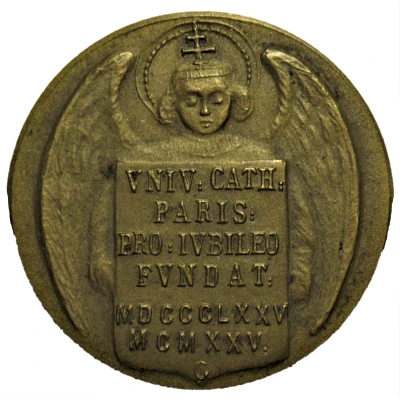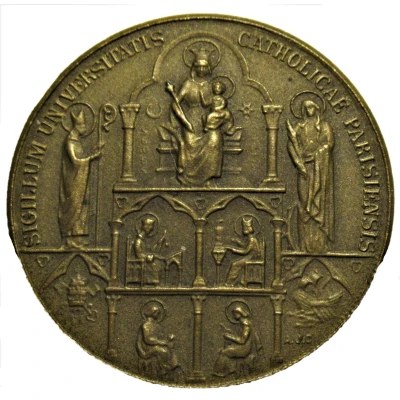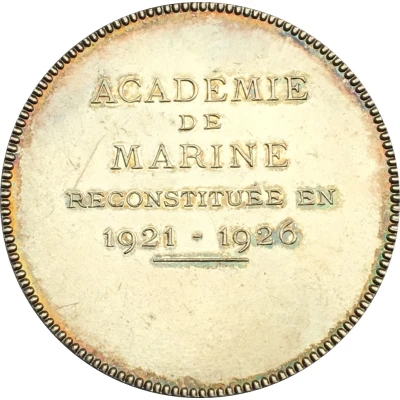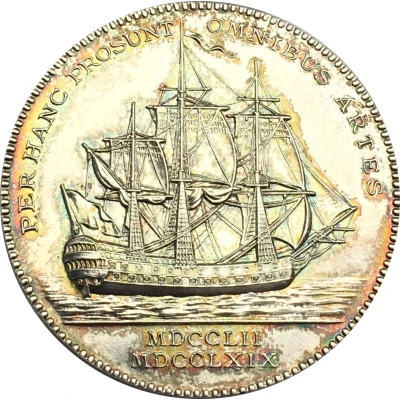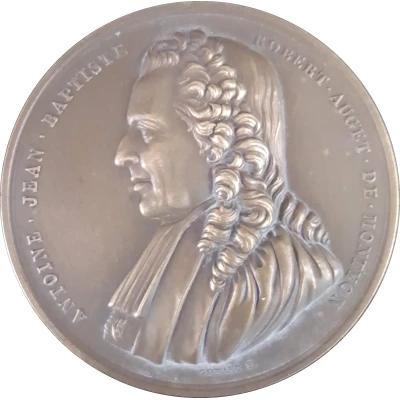
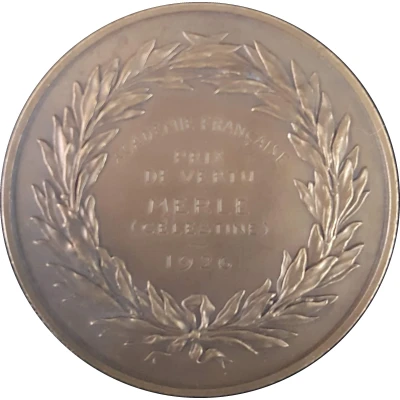

© Crappulos
Medal - Baron de Montyon's virtue
1926 year| Bronze | 61.4 g | 52.4 mm |
| Location | France |
|---|---|
| Period | Third Republic (1870-1940) |
| Type | Award medals › Scholastic, academic and scientific awards |
| Year | 1926 |
| Composition | Bronze |
| Weight | 61.4 g |
| Diameter | 52.4 mm |
| Shape | Round |
| Technique | Milled |
| Orientation | Medal alignment ↑↑ |
| Updated | 2024-11-12 |
| Numista | N#188435 |
|---|---|
| Rarity index | 95% |
Reverse
Legend in 6 lines in a crown of laurels.
Script: Latin
Lettering:
ACADÉMIE FRANÇAISE
PRIX DE VERTU
MERLE
(CELESTINE)
1926.
Engraver: Raymond Gayrard
Comment
Antoine-Jean-Baptiste-Robert Auget, baron de Montyon, was a French philanthropist and economist, born in Paris on December 23, 1733 and died in the same city on December 29, 1820.After becoming a lawyer at the Châtelet in 1755, he became maître des requêtes at the Conseil d'État, then intendant of various provinces such as Auvergne and Provence. Called back to Paris in 1775 to become State Councillor, he was appointed Chancellor to Monsieur, the King's brother, in 1780. A very wealthy man, he created a number of prizes distributed by learned societies, including the Prix de vertu awarded by the Académie française to deserving individuals, which was awarded for the first time in 1782. He emigrated at the start of the French Revolution, returning to France only in 1814 under the Restoration. When he died, he left a substantial capital sum to the Institut de France in his will, to be used to reward edifying works or deeds: the Prix de vertu, a literary prize and a scientific prize, all three of which came to be known as the Prix Montyon.
The Prix de vertu is still awarded today, but the sums awarded have become extremely minimal. However, one of the clauses in the founder's will requires that every year, "a speech in praise of an act of virtue" be read out. And so, since 1819, a member of the Académie Française has engaged in the delicate annual exercise of eulogizing virtuous laureates and virtues in general, as a pretext for reflecting on the mores of his time. The speeches delivered by François Guizot, Alexis de Tocqueville, Thierry Maulnier, Jean Guitton, François Mauriac and Erik Orsenna provide a particularly original picture of the history of morality. Not forgetting Paul Valéry.
